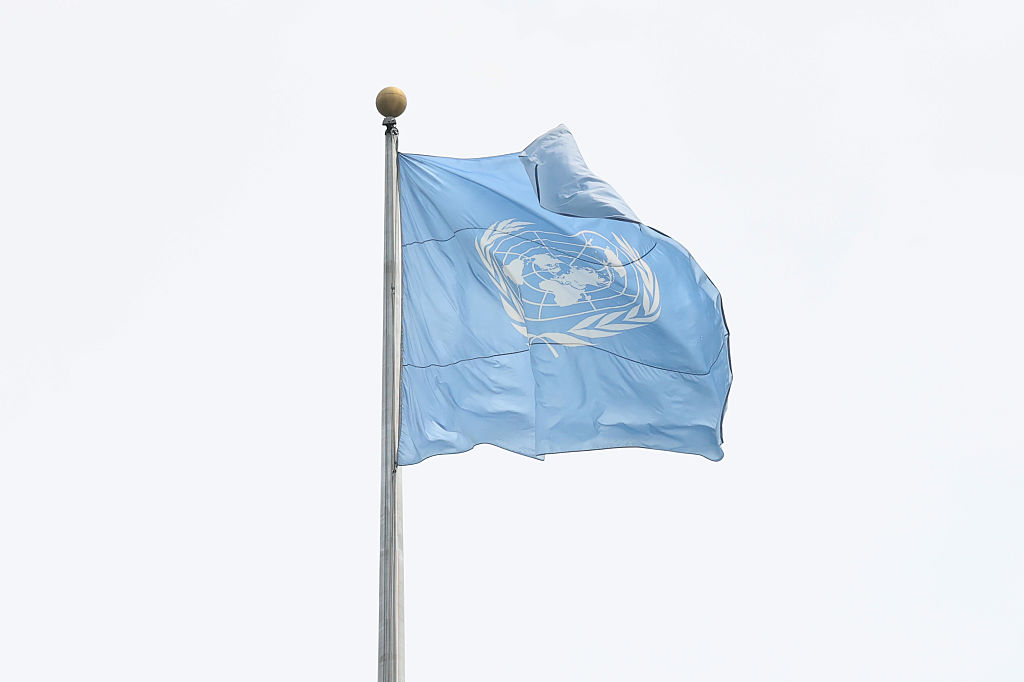“Walking by the banks of the Chao Praya on a breezy evening after a day of intense heat,” writes Sunil Amrith at the start of his melancholic new book, “I struggled to connect the scene before me.” While the river that flows through Bangkok looked idyllic, “crowded with noisy pleasure boats festooned with lights,” Amrith was struck by the realization that half of the city “could be underwater by the end of this century.” This thought was the latest stage in a process that he says has taken him time to work out: “I can no longer separate the crisis of life on Earth from our concerns with justice and human freedom that inspired me to become a historian in the first place.”
Rudyard Kipling was appalled by the meat industry, but reveled in the death inflicted by Britain’s imperial armies
The result is The Burning Earth, a volume that bristles with indignation. All history used to be environmental, notes the author — for “life was governed by seasons. When the weather gods were fickle, misery followed.” That required humans to be ingenious, learning how to wield fire, dam rivers, cut down forests and mitigate risks. According to Amrith, those were golden days, when humans shared shelter with animals, devised gods of beneficence and “every culture had dreams of plenty.” Opportunities seemed endless. “Then things changed.”
Amrith is a professor of history at Yale with an outstanding academic record, as well as being the author of several highly regarded books, mainly about South Asia. He is a scholar who writes with conviction. In this book, he is clear about who’s to blame for how “things changed,” even if he’s reticent about how or why. “The most privileged people in the world began to think that the human battle against nature could be won.” With the aid of steam engines and lethal weapons, “they poisoned rivers, razed hills, made forests disappear, terrorized surviving animals and drove them to the brink of extinction.” Freedom for some meant the loss of rights for others:
The most powerful people in the world believed, and some still believe, that human beings and other forms of life on Earth are but resources to be exploited, to be moved around at will.
The history that Amrith covers is uncompromising, and he places the sins of environmental change on the insatiable greed of Europeans:
Agrarian Europe annexed another hemisphere by decimating indigenous agriculture, and then filled the archipelagos of Atlantic islands with a captive labor force. The blood and toil of enslaved people from West Africa generated wealth for European investors, who used it to reshape nature on both sides of the Atlantic.
Bison were slaughtered in vast numbers, while the industrialization of meat-processing by the late nineteenth century meant that dining tables groaned with the weight of freshly killed pigs and cattle — at least in some parts of the world. Rudyard Kipling was appalled by the meat industry, says Amrith. A shame, then, that he “reveled in the death inflicted by Britain’s imperial armies upon Asians and Africans,” writing “in loving praise” about “Brown Bess” — the musket that was the weapon of choice of British soldiers in Quebec, Gibraltar, Acre and beyond as Britain built its empire.
There were others, of course, who changed ecologies, enslaved people and built great empires — not least the Ottomans, the Safavids, the Mughals and the Qing, all of whom produced outcomes devastating for the natural world as well as for those who were exploited by these elites. They receive little attention here. Rather, it is the people who lived “in the heart of imperial power, in the industrial cities of western Europe and North America,” who caused the sufferings of the past and the problems of the present and future. Hubris led “administrators, scholars and investors” to the certainty that “by the end of the nineteenth century, they had mastered nothing less than life itself.”
That sense of confidence owed much to the ways in which the “animal, vegetal and mineral products” of other parts of the world were monopolized — most obviously, says Amrith, by the British in India. It was the source of terrible suffering in China under Mao, too, he writes, where orders were given to declare war on nature that resulted in one of the most devastating famines in history, in which tens of millions of people died. Nevertheless, says the author, in a rather startling coda:
It was motivated by a misguided sense of public purpose, always with the end goal of increasing the production of food. In that sense, at least, it never had the bloodlust and gratuitous cruelty of American and European colonial trophy-hunting in the nineteenth century.
When it comes to more recent times, Amrith notes the missed opportunities that might have helped mitigate, or even avoid, some of the worrying, perhaps existential, challenges that we now face. The horrors of pesticide use which were made clear by Rachel Carson in 1962, and the stark warnings about rapid global warming most famously articulated by James Hansen at a Senate hearing in 1988, should have brought about action rather than talk. Those who tried to stand up to, or in the way of, big money, such as Chico Mendes in Brazil and Ken Saro-Wiwa in the Niger Delta, ended up dead. Human greed and stupidity have a lot to answer for.
James Hansen’s stark warnings in 1988 should have brought about action rather than talk
What then to do about the burning Earth? A radical shift in food systems, for starters, since maldistribution is pervasive. So there is “a strong moral and political case for advocating a sharp reduction in the quantity of animal products eaten in the Global North” and perhaps also in a country such as Brazil, where levels of meat consumption are very high. To apply this solution to India, though, “would be both misguided and politically irresponsible,” says Amrith, since protein consumption levels are low, and also since “militant vegetarianism” has become used as a marker of cultural purity by the forces of Hindu nationalism.
Perhaps, he argues, use could be made of video games, since a recent large-scale survey suggested that the overwhelming majority of respondents believed that games could teach them about environmental problems. Hope comes, too, from hyper-urban Korean popular music, which has a reach that goes far beyond South Korea, and from the promotion of environmental justice by pop stars with slogans such as “After all, there’s no K-pop on a dead planet,”’ which are “instantly memorable.”
The good news is that it seems as though more and more people are challenging the “self-destructive folly that has captured the imagination of the powerful and privileged for 200 years” — namely that there are no consequences to changing the natural world. Amrith is not without hope:
The struggle ahead is to remember that all history was environmental history, and to integrate our creatureliness into new visions of human flourishing on Earth. Only then can we regain our freedom.
That sounds pretty optimistic to me.
This article was originally published in The Spectator’s UK magazine. Subscribe to the World edition here.





















